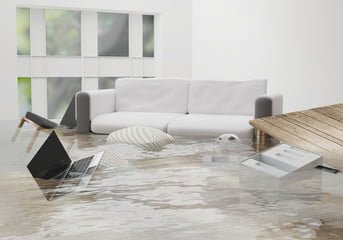This article was originally published by Sara Tipton at Ready Nutrition.

Across large swaths of the United States, people are deeply entrenched in an unprecedented flood season. From bomb cyclones to the complete annihilation of farmland and crops across the nations, Americans are experiencing one of the worst flood seasons in history.
According to NOAA (National Oceanic and Atmospheric Association), this year is “unprecedented” when it comes to flooding. “The extensive flooding we’ve seen in the past two weeks will continue through May and become dire and may be exacerbated in the coming weeks as the water flows downstream. This is shaping up to be a potentially unprecedented flood season, with more than 200 million people at risk for flooding in their communities,” writes Ed Clark, the director of NOAA’s National Water Center.
This warning comes as farmers suffer the massive loss of land and crops due to the floods. Because of this, we thought it would be beneficial to put together a guide that will help you determine whether or not your home has water damage, and what you can do about it. Water damage is a serious hazard and happens far more often than most people think. It can strike a home at any time, resulting from any number of different problems, leaving the homeowner unsure of where to turn for water extraction and restoration. Water damage can cause structural damage which can continue to worsen over time if not properly treated.
Property damage resulting from water and leaks is the third most common cause of homeowner loss. Water  damage alone caused $9.1 billion in homeowner property losses from 2007 to 2009. The American Insurance Association (AIA) states that “water damage claims have been growing faster than other components of homeowners insurance.” About 14,000 Americans experience damages due to water and leaks every single day.
damage alone caused $9.1 billion in homeowner property losses from 2007 to 2009. The American Insurance Association (AIA) states that “water damage claims have been growing faster than other components of homeowners insurance.” About 14,000 Americans experience damages due to water and leaks every single day.
Many of these accidents could have been prevented, up to 93% according to the AIA, and most water damage occurs because leaks that were slow and gradual turned into a bigger problem seemingly overnight. The quicker you are able to spot water damage and repair it, the less impact it will have on your finances. Time is of the essence when it comes to homes damaged by water. Instead of living in fear, know the signs so you can stay on top of problems water can cause to your home!
Tell-Tale Signs To Look For
There are a few tell-tale signs that will alert you should your home have water damage. You will want to be on the lookout for:
- Dark or wet spots on the wall or ceiling – These spots indicate a leak of some kind and it would be beneficial to find the source of the water and prevent further damage to your home
- Drywall that begins to flake or crack – Again, the drywall will need to be replaced, but you will first need to find where the water doing the damage is coming from
- Wet spots, drips or puddles around your pipes, sinks, toilets, taps, etc.
- A damp, musty or moldy smell that suddenly appears; there could also be a sewage smell coming from any plumbing fixtures
- Hearing water running even when all the fixtures are turned off
- Suddenly feeling unusual dampness or humidity in the home
- If you are not on a well and use city water, check your bill every month. An unusually high water bill could be a sign that you have a leak in a pipe somewhere.
If you are unable to find the source of the water after determining you’ve got some damage, immediately call someone for help. Find a business that specializes in water damage and fixing it, and the sooner you can get them to your home, the better!
Water damage can quickly worsen and become a mold problem if not corrected as soon as possible. That will certainly ratchet up the cost of repairs and could end up making your family sick being inside a home with mold. Some mold can also be lethal, so it is of the utmost importance that you take the initiative and spot any damage as soon as possible!









0 Comments